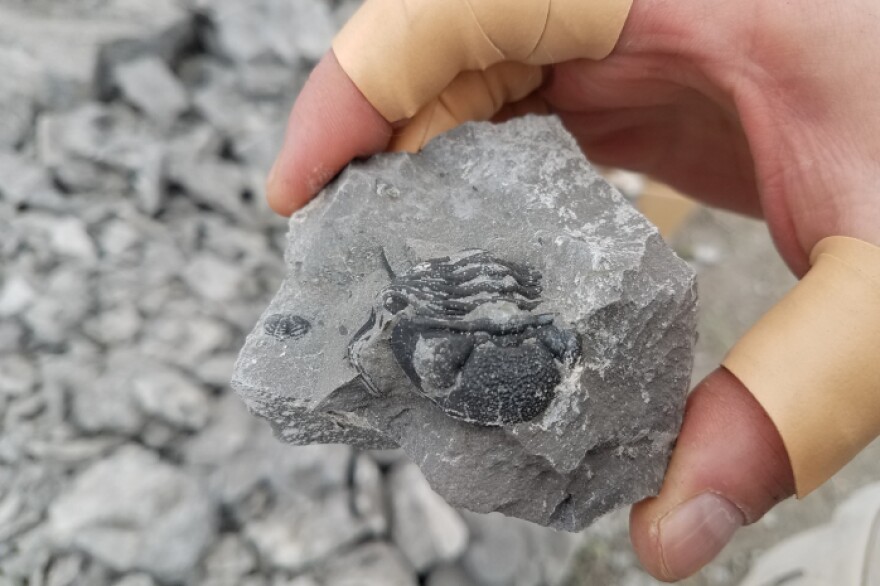Earlier this summer, Buffalo became the new home of the Guinness World Record for the largest collection of pink lawn flamingos. To continue the summer’s record-setting success, on Saturday morning Western New York will be home to another new world record.Hamburg’s Penn Dixie Fossil Park and Nature Reserve is setting the Guinness World Record for world’s largest fossil dig.
Unlike the flamingo record, which surprisingly did exist, no such fossil-digging record had been set before. Penn Dixie worked with Guinness to change that.
“I wanted to know if there was a record for fossil collecting at all and they took about six months to get back to me and say that ‘no there wasn’t a record in place,’” said Dr. Phil Stokes, executive director of Penn Dixie. “So Guinness created a new category and they set up quite a few rules to objectively measure whether or not we could fulfil that and we go back to them and said ‘alright, we’re gonna do this.’”
Those rules include ensuring every digger is digging simultaneously for 30 minutes in designated zones. Community stewards will be surveying the sites, making sure everyone is digging. All fossils need to be that, fossils, and not rocks, which Dr. Stokes said is a common mistake. Each digger needs to submit two fossils at the end of the dig to a third-party paleontologist. Dr. Lisa Amati, New York State’s paleontologist, will be checking all the fossils.
Digging tools are being provided for the diggers. With $5 admission, they will receive a t-shirt, fossil collecting bag and whatever fossils they find.
Five-hundred diggers were the minimum amount Penn Dixie could have for the record. Spots filled up fast and 1,000 people are expected to participate. No tickets remain as of Friday afternoon.
What kinds of fossils can people expect to dig up?
“They’re all animals that lived in the shallow, marine environment, 380 million years ago,” Dr. Stokes said. “Buffalo was south of the equator, it was warm, tropical waters. And so the types of fossils we find are representative of reef inhabitants.”
According to their website, some of those are “Trilobites, brachiopods, corals, crinoids, fish, and cephalopods.”
The event’s grand marshal might get some ideas for his own fossil park in Kashmir, India.
Haji Abdul Majid Butt is the founder of the Kashmir Triassic Fossil Park. Like Penn Dixie, which opened in the 1990s by a group of volunteers seeking to preserve the land for historic and teaching purposes, Butt recently opened Kashmir’s fossil park for similar reasons. He was inspired by his visit to Penn Dixie to open his own, in Kashmir.
When asked if Kashmir’s fossil park will someday break their record, Dr. Stokes said he would love that.
“I would love to see them try,” Dr. Stokes laughed. “In fact, I’d be booking my plane ticket to go over and help, too.”


